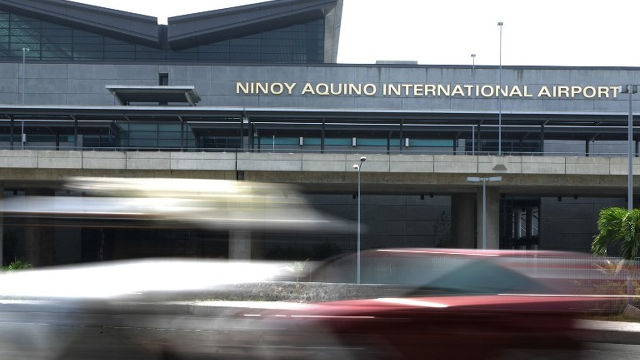SUMMARY
This is AI generated summarization, which may have errors. For context, always refer to the full article.

MANILA, Philippines – A memorandum by the Bureau of Immigration (BI) allowing it to ask for financial proof from suspicious passengers caused uproar among netizens, but Malacañang defended it as a necessary human trafficking prevention tool.
Memorandum Order No 2011-011 also allows the BI to offload passengers with “fraudulent travel documents” or “doubtful purpose of travel.”
On Monday, March 17, Presidential Spokesperson Edwin Lacierda admitted the guidelines “may not be perfect” but will help “to protect our citizen’s from human trafficking.”
“I hope we realize that we do have a concern for human trafficking. Our nationals are being trafficked abroad, so we want to prevent that, and these particular guidelines and implementation of these guidelines help elevate our status to Tier 2,” he said.
Lacierda also clarified the guidelines are not meant “somebody who wants to travel with all the completed documents to be prevented from traveling.” He said according to BI Commissioner Siegfred Mison, the BI will “simply hold in abeyance the travel of persons with a doubtful purpose of stay.”
Malacañang said there was nothing unconstitutional about the guidelines.
“In terms of constitutionality, we know that the right to travel is not absolute,” Lacierda said.
Based on the guidelines, travelers are categorized according to purpose, whether as tourists, OFWs, or immigrants. They will be required to present documents depending on their travel purposes to prevent being offloaded.
The BI said offloading, or barring passengers from leaving the country, is not an official government policy but a consequence of the implementation of the guidelines.
Section 6, Article III, of the 1987 Constitution guarantees Filipinos’ right to travel, but it is not absolute. The Constitution states this right may be curtailed for the interest of national security, public safety, or public health.
Sorry for hassle
Lacierda gave assurances the BI periodically trains frontline personnel, and that only those seemed necessary of a secondary inspection are asked to fill up a questionnaire, which the immigration officer will then use to determine whether the traveler belongs to a vulnerable group.
Mison has said the implementation of the guidelines contributed to a decline in the incidents of human trafficking and illegal recruitment.
Despite Malacañang’s defense however, Lacierda apologized in advance for those who will be hassled by the guidelines, even citing an experience of Deputy Presidential Abigail Valte, who was questioned about her son during their last travel.
Lacierda said an immigration officer asked Valte about the purposes of her and her son’s travel, even going so far as to ask whether the child was truly Valte’s son.
“You know, we understand the concern,” said Lacierda. “There might be instances where somebody who is not an undocumented Filipino may be asked questions and we ask for understanding and apology for them.” – Rappler.com
Add a comment
How does this make you feel?
There are no comments yet. Add your comment to start the conversation.